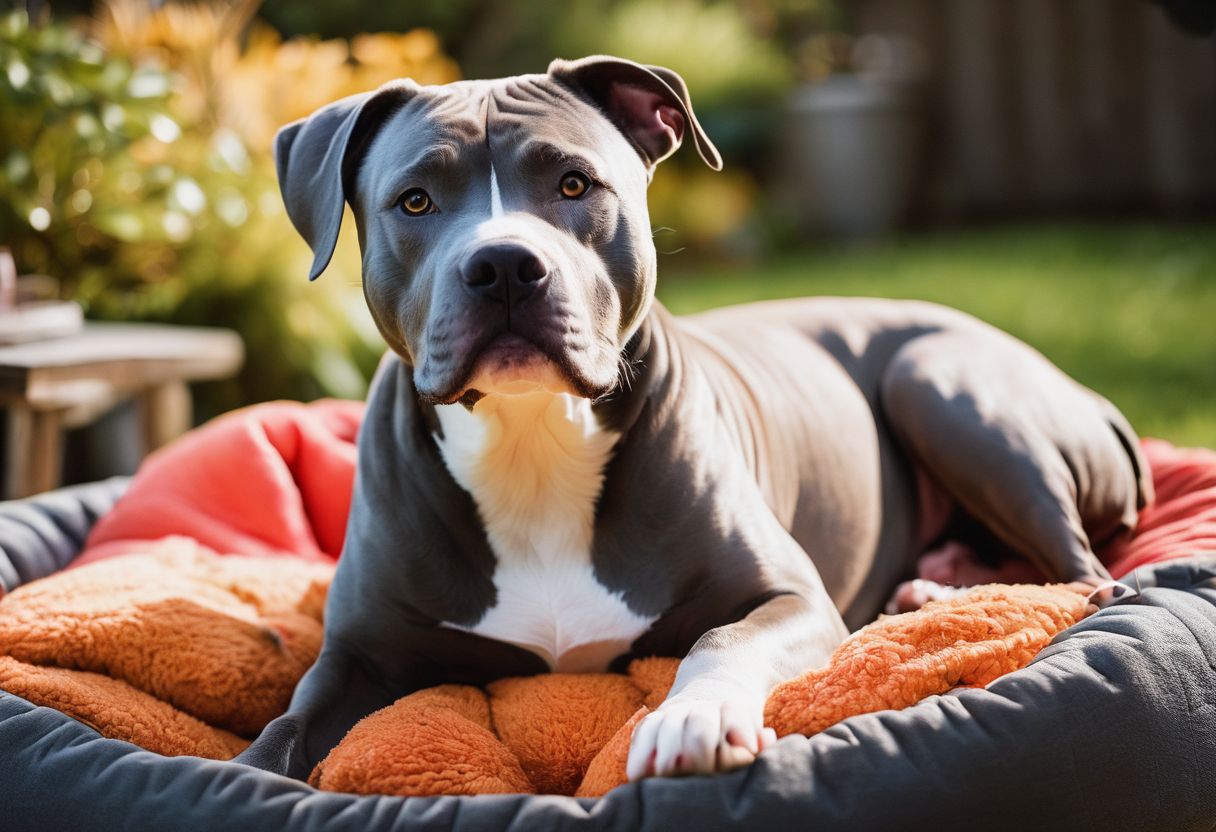Have you ever wondered how old do pit bulls live? Statistics reveal that most Pit Bulls have an average lifespan of 12 to 14 years. This blog post will delve into the factors affecting their longevity and provide tips on enhancing your pet’s health, happiness and overall lifespan.
Engage with us as we journey through life with our beloved Pit Bulls!
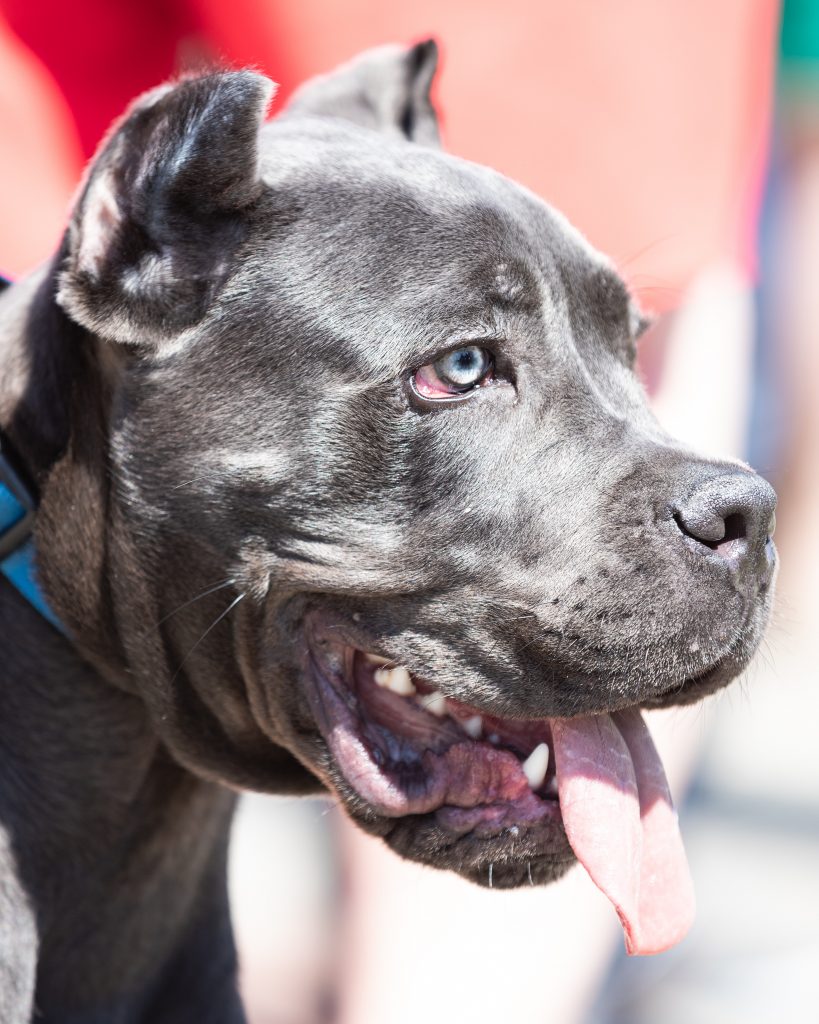
Key Takeaways
- Pit Bulls have an average lifespan of 12 to 14 years.
- Factors that impact their lifespan include underlying health issues, spaying/neutering, exercise levels, diet quality, and environment.
- Common health issues in Pit Bulls include hip dysplasia, skin infections, cataracts, knee issues, and hypothyroidism.
- Tips for increasing a Pit Bull’s lifespan: choose a reputable breeder for good genetics, maintain a healthy weight through proper diet and exercise, provide regular veterinary care, ensure a high-quality diet, and create a loving environment.
Factors That Impact Pit Bull Lifespan
Several factors can significantly impact the lifespan of Pit Bulls, including underlying health issues, spaying and neutering, exercise levels, diet quality, and their environment.
Underlying health issues
Pit Bulls can have health problems. Some get hip dysplasia. This makes their hips hurt and move wrong. Skin infections are also common in Pit Bulls. Patches of red, itchy skin may show up on their bodies.
They might scratch a lot or even lose hair where the infection is. Other Pit Bulls may have troubles with their eyesight due to cataracts clouding up their vision. Knee issues can occur too, making simple tasks like walking and jumping hard for them to do.
Lastly, Hypothyroidism is another possible issue that appears more frequently in aging pit bulls than other breeds causing loss of energy and weight gain among others symptoms.
Spaying and Neutering
Neutering and spraying your pit bull is an important factor that can impact their lifespan. When you spay or neuter your dog, you remove their ability to reproduce. This can have positive effects on their overall health and behavior.
Spaying a female pit bull reduces the risk of certain reproductive cancers, while neutering a male pit bull can help prevent testicular cancer and reduce aggressive behaviors. By getting your pit bull spayed or neutered, you are helping them live a longer and healthier life.
It’s important to remember that spaying and neutering should be done by a qualified veterinarian. Additionally, it’s best to have this procedure done when your dog is still young, ideally around 6 months of age.
By taking this step for your beloved pit bull, you are not only ensuring their well-being but also contributing to the overall population control of dogs in general.
Exercise
Regular exercise is crucial for keeping pit bulls healthy and happy as they age. Pit bulls are energetic and active dogs that require daily physical activity to maintain their overall well-being.
Exercise helps to prevent weight gain, which can lead to health issues such as arthritis and heart disease. It also helps to keep their muscles strong and joints flexible, reducing the risk of injuries.
Taking your pit bull on daily walks, playtime in a fenced yard, or engaging them in interactive games like fetch or agility training can provide them with the necessary exercise they need.
Diet
The diet plays a crucial role in the lifespan of pit bulls. Providing them with a high-quality and balanced diet is essential for their overall health and longevity. Feeding them nutritious meals that are specifically formulated for their breed can help prevent certain health issues and promote healthy aging.
A well-balanced diet should consist of protein, carbohydrates, fats, vitamins, and minerals. It is important to avoid overfeeding or underfeeding your pit bull as it can lead to obesity or malnutrition, both of which can impact their lifespan negatively.
Regularly consulting with a veterinarian about your pit bull’s dietary needs and making necessary adjustments based on their age, weight, and activity level is also crucial for optimal health.
Environment
Pit bulls thrive in a loving and caring environment. Providing a safe and happy home can contribute to their longevity. Creating a stress-free atmosphere, with plenty of mental and physical stimulation, is essential for their well-being.
This includes regular exercise, playtime, and interaction with their human family members. Additionally, maintaining a clean living space and ensuring access to fresh water are important factors in keeping pit bulls healthy.
By prioritizing their environment, you can help them live their best lives for as long as possible.
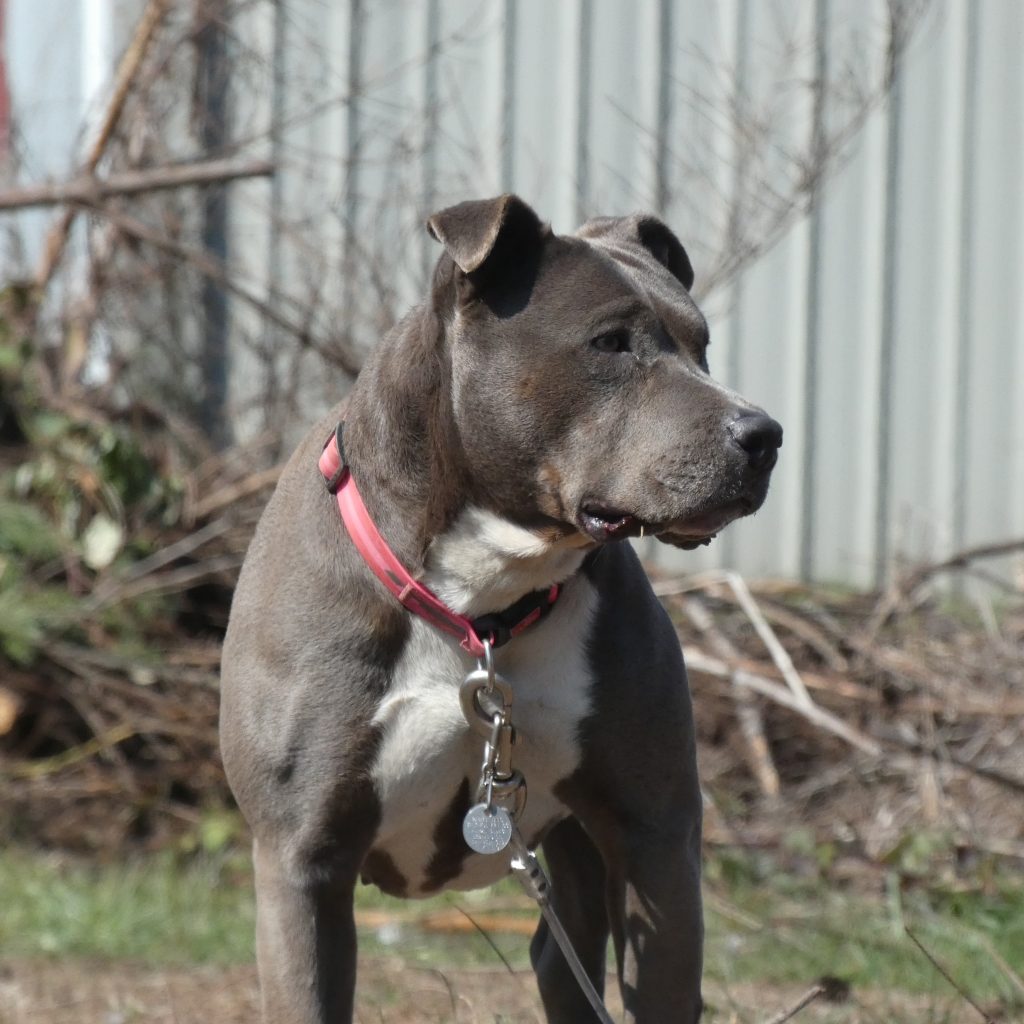
Common Health Issues in Pit Bulls
Pit Bulls commonly experience health issues such as hip dysplasia, skin infections, cataracts, knee issues, and hypothyroidism.
Hip dysplasia
Hip dysplasia is a common health issue in pit bulls. It affects the hip joints, causing pain and difficulty walking. This condition can be genetic or develop over time due to factors like diet and exercise.
Pit bulls with hip dysplasia may show signs of lameness, stiffness, or reluctance to move. Treatment options include medication, physical therapy, and surgery in severe cases. Regular veterinary check-ups and maintaining a healthy weight can help manage this condition and improve your pit bull’s quality of life as they age.
Skin infections
Skin infections are a common health issue in pit bulls. These infections can be caused by bacteria, fungi, or parasites. Pit bulls are prone to allergies which can make their skin more vulnerable to infections.
Signs of a skin infection may include redness, itching, hair loss, and sores on the skin. If you notice any signs of a skin infection in your pit bull, it’s important to take them to the vet for proper diagnosis and treatment.
The vet may prescribe medications such as antibiotics or antifungal drugs to help clear up the infection. Regular grooming and keeping your pit bull’s skin clean can also help prevent future infections.
Cataracts
Cataracts are a common health issue in pit bulls as they age. It cause cloudiness in the lens of the eye, leading to vision problems or even blindness. It’s important to note that cataracts can develop at any age, but they are more likely to occur in older dogs.
Regular veterinary check-ups can help detect and monitor cataracts early on. In some cases, surgery may be recommended to remove the cataracts and improve your pit bull’s quality of life.
Taking good care of your pit bull’s overall health and providing them with a balanced diet can also help prevent or delay the onset of cataracts.
Knee issues
Pit bulls can sometimes develop knee issues as they age. This can include conditions like torn ligaments or patellar luxation, where the kneecap becomes dislocated. These problems can cause pain and difficulty in walking or running for your pit bull.
It’s important to provide proper veterinary care and consult with a professional if you notice any signs of knee issues in your pet. Regular exercise, maintaining a healthy weight, and giving them a balanced diet can help prevent or manage these problems.
Hypothyroidism
Hypothyroidism is a common health issue that can affect pit bulls as they age. It happens when the thyroid gland doesn’t produce enough hormones, which can slow down their metabolism and cause weight gain.
Some signs of hypothyroidism in pit bulls include fatigue, hair loss, dry skin, and sensitivity to cold. If you notice these symptoms in your dog, it’s important to take them to the vet for a proper diagnosis.
The good news is that hypothyroidism can be managed with medication and a healthy diet. With the right treatment plan, your pit bull can still lead a happy and active life even with this condition.
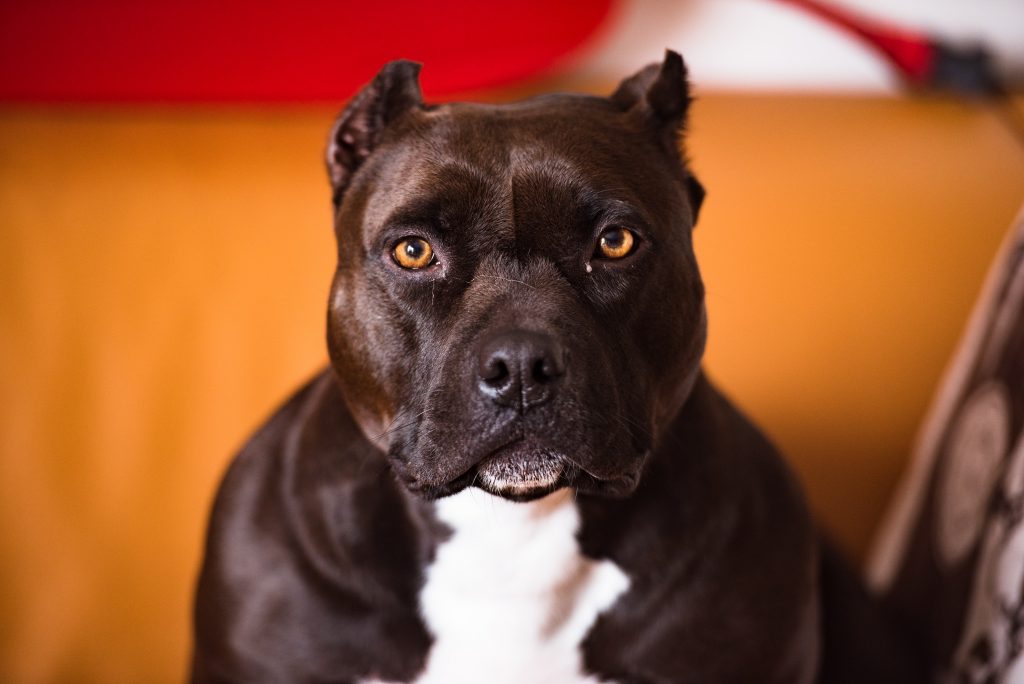
Tips for Increasing Pit Bull Lifespan
To increase a Pit Bull’s lifespan, it is important to focus on genetics and breeding, maintain a healthy weight through proper nutrition and exercise, provide regular veterinary care, ensure a high-quality diet, and create a loving and caring environment.
Genetics and breeding
Pit bull lifespan can be influenced by genetics and breeding. The diverse genetic makeup of pit bulls contributes to their average life expectancy. Good breeding practices and responsible breeders play an important role in ensuring the overall health and longevity of pit bulls.
By selecting healthy parents with good temperaments, breeders can help reduce the risk of hereditary health issues that may shorten a pit bull’s lifespan. So, when looking for a pit bull, it is crucial to choose a reputable breeder who prioritizes the health and well-being of their dogs.
Maintaining a healthy weight
Keeping your pit bull at a healthy weight is important for their overall well-being and longevity. Here are some tips to help you maintain a healthy weight for your pit bull:
- Provide them with nutritious food: Feed your pit bull a high-quality diet that is appropriate for their age and size. This will ensure they get the necessary nutrients without excess calories.
- Portion control: Measure out their food based on their specific needs. Avoid free-feeding, as it can lead to overeating and weight gain.
- Regular exercise: Engage your pit bull in regular exercise to keep them active and burn off excess calories. Take them for daily walks, play fetch, or engage in interactive games to keep them moving.
- Monitor treats: Limit the number of treats you give to your pit bull and choose healthier options like small pieces of fruits or vegetables. Avoid giving table scraps, as they can be high in fat and calories.
- Consult with your veterinarian: Regularly check in with your vet to monitor your pit bull’s weight and discuss any concerns or changes in their diet or exercise routine.
Regular veterinary care
Regular veterinary care is crucial for maintaining the health and well-being of your pit bull. Here are some important aspects to consider:
- Schedule yearly check – ups with your veterinarian to monitor your pit bull’s overall health and catch any potential issues early on.
- Keep up with vaccinations, flea and tick prevention, and heartworm medication to protect your pit bull from preventable diseases.
- Discuss appropriate dental care and cleaning routines with your veterinarian to ensure good oral hygiene for your pit bull.
- Regularly groom your pit bull to keep their coat clean and healthy, and check for any signs of skin infections or allergies.
- If your pit bull shows any signs of illness or discomfort, don’t hesitate to seek veterinary attention promptly.
High-quality diet
To help increase the lifespan of your pit bull, provide them with a high-quality diet. Here are some tips for ensuring they get the nutrition they need:
- Feed your pit bull a balanced diet that includes a mix of protein, carbohydrates, and fats.
- Choose dog food made with real meat as the main ingredient.
- Avoid foods that contain fillers or artificial ingredients.
- Consider feeding your pit bull a raw or homemade diet if it is suitable for their needs.
- Provide fresh water at all times to keep them hydrated.
Providing a loving and caring environment
To increase the lifespan of your pit bull, it’s crucial to provide a loving and caring environment. This means giving them plenty of attention, affection, and mental stimulation. Creating a safe and comfortable living space is essential too.
Ensure they have a cozy bed, toys to play with, and shelter from extreme weather conditions. Regular exercise is also important for their overall well-being. By providing love, care, and attention to your pit bull, you can help them thrive and enjoy a longer life by your side.
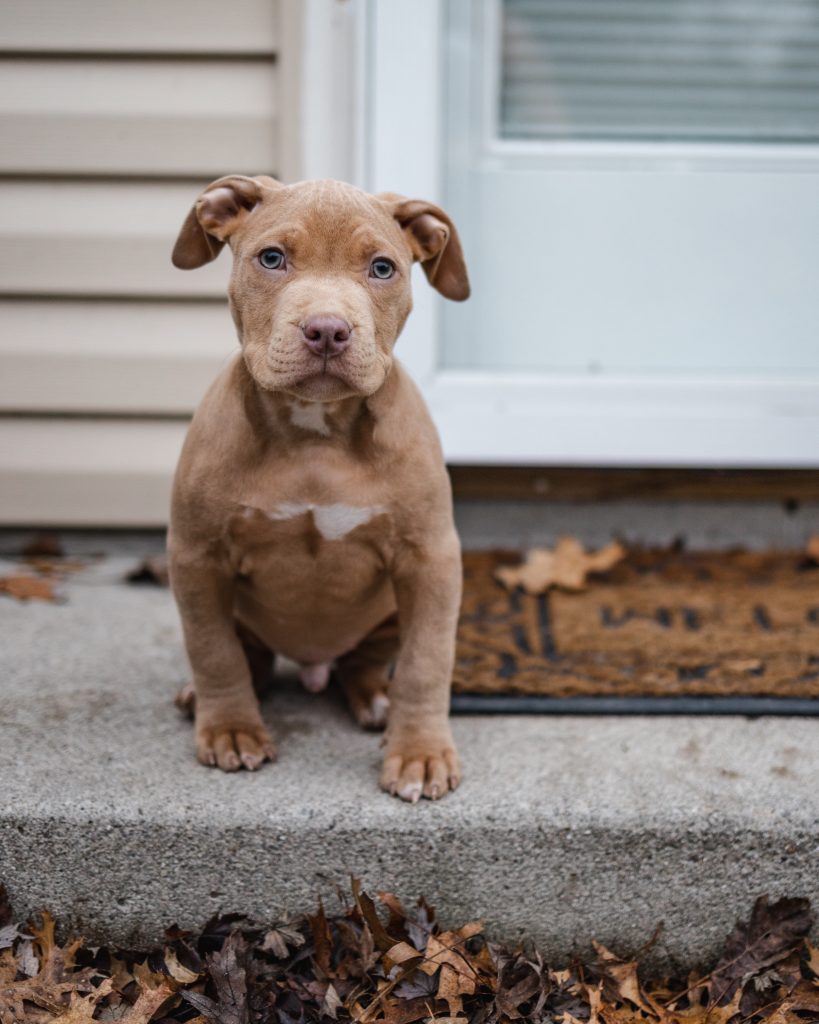
Conclusion
In conclusion, pit bulls can thrive for an average of 12 to 14 years. Factors such as genetics, diet, exercise, and veterinary care play a role in their lifespan. By providing them with love, care, and regular check-ups from the vet, we can help our pit bulls live long and healthy lives.
FAQs
1. How long is the average pit bull lifespan?
The average pit bull lifespan is about 12 to 14 years. This can change with good care and joy in their lives.
2. What are the stages of a pit bull aging process?
The main stages in a pit bull aging process start from being a pup, moving through its prime years, into its senior years where they age more quickly than their younger years.
3. How do you care for an aging pit bull?
Caring for an aging pit bull involves understanding the changes in their health and longevity due to age, giving them well-balanced meals and regular vet visits.
4. What factors affect the aging of pit bulls?
Factors like crossbreed genetics and how well they are cared for can affect the aging of Pit Bulls considerably.
5. Can you explain more about senior pit bull care tips?
Senior Pit Bull care tips include regular check-ups at the vet, right diet plans suited for older dogs, daily walks at a slower pace compared to when they were young.


